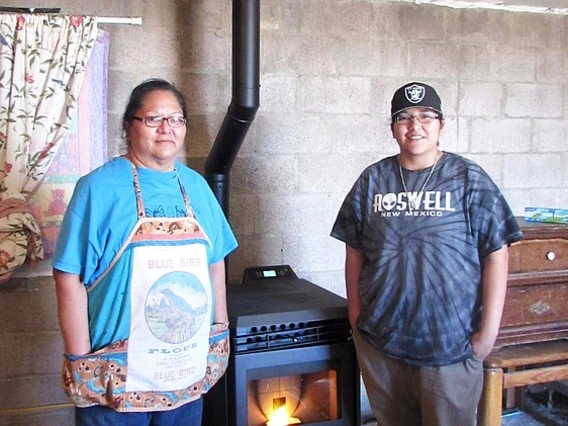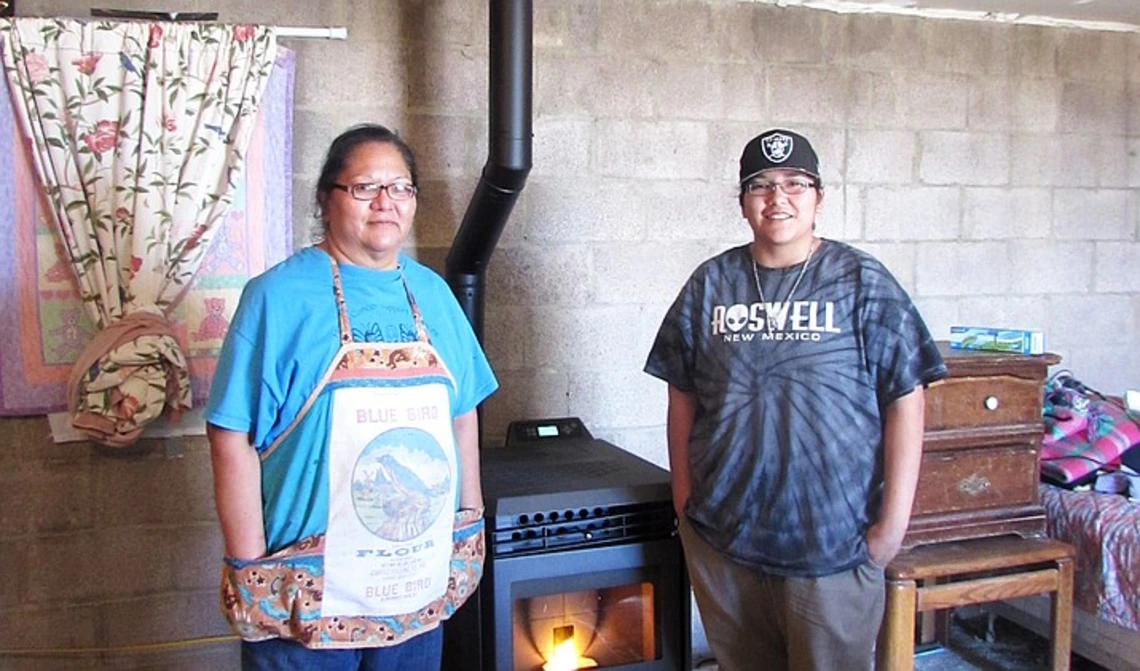The Agnese Nelms Haury Program Announces Its 2017 Fall Competitive Grant Cycle Awards.

The Agnese Nelms Haury Program in Environment and Social Justice (Haury Program) is excited to announce awards for its Fall 2017 competitive grant cycle. These awards represent investments in dedicated efforts to bring transformational change to strengthen the fabric of communities and tackle environmental challenges.
The Haury Program made a record number of awards from a pool of more applications than we have ever received in the first three years of the Haury Program. “The pool of applicants expands and individual proposals grow stronger every year. We’re extremely pleased to be able to invest in ten awards this year. These are outstanding people and projects which will advance social justice and address environmental challenges in innovative and thoughtful ways,” said Anna H. Spitz, Director of the Haury Program.
The Program made awards in three established categories: one visiting associate, three seed grants and three challenge grant finalists who will compete for the Challenge Award in spring 2018. Additionally, the Haury Program made three Change Maker Grants from the pool of visiting associates applicants to bring Bernard Lafayette, Jr, renowned civil rights activist and organizer, Kepha Ngito, Kenyan environmental justice organizer, and Gabriel Schivone, graphic novel author to Tucson and the University of Arizona (UA) in Spring 2018.
 The visiting associate, Tracy Perkins of Howard University, will spend four months in the Southwest working with Tracy Osborne and Brian Mayer of the University of Arizona. “I’ll be using my time in Arizona to create a digital archive of a 1990s era campaign against a nuclear waste landfill. In particular, the project will highlight the role of five tribes along the lower Colorado River in the landfill’s eventual defeat. The visiting associateship at the Haury Program is enabling me to do the kind of scholarship that isn’t always well supported - projects developed with off-campus partners that create digital products designed to be available to a broad audience. I hope the rich stories that emerge will also inspire university libraries to create environmental justice archives out of the many personal collections currently being held in closets, garages and storage units. If these archives are lost over time, many of the experiences of environmentalists of color, in particular, will continue to be left out of the narrative of US environmental history."
The visiting associate, Tracy Perkins of Howard University, will spend four months in the Southwest working with Tracy Osborne and Brian Mayer of the University of Arizona. “I’ll be using my time in Arizona to create a digital archive of a 1990s era campaign against a nuclear waste landfill. In particular, the project will highlight the role of five tribes along the lower Colorado River in the landfill’s eventual defeat. The visiting associateship at the Haury Program is enabling me to do the kind of scholarship that isn’t always well supported - projects developed with off-campus partners that create digital products designed to be available to a broad audience. I hope the rich stories that emerge will also inspire university libraries to create environmental justice archives out of the many personal collections currently being held in closets, garages and storage units. If these archives are lost over time, many of the experiences of environmentalists of color, in particular, will continue to be left out of the narrative of US environmental history."
Haury Program projects focus on “moving the needle” toward transformational or systemic change in communities through UA-community partnerships. Seed grants are often the first stage in bringing change to a community through research, education and implementation.
 Joe Seidenberg of the Red Feather Development Group will work with both UA and NAU researchers to help implement transitions in energy for the seed grant, Red Feather DIY Healthy Heating. “With the Peabody Coal Mine closure, Hopi families will no longer have access to free coal for indoor heating, which also caused detrimental health impacts such as respiratory disease. This grant is vital to implement a DIY Healthy Heating class to introduce alternative clean energies, helping to reduce economic and health disparities related to heating and air quality in Hopi homes.”
Joe Seidenberg of the Red Feather Development Group will work with both UA and NAU researchers to help implement transitions in energy for the seed grant, Red Feather DIY Healthy Heating. “With the Peabody Coal Mine closure, Hopi families will no longer have access to free coal for indoor heating, which also caused detrimental health impacts such as respiratory disease. This grant is vital to implement a DIY Healthy Heating class to introduce alternative clean energies, helping to reduce economic and health disparities related to heating and air quality in Hopi homes.”
UA partner, Brian Mayer, School of Sociology, states, “This Seed Grant from the Haury Program in Environment and Social Justice greatly allows me to expand my ongoing work on with the Hopi Tribe and Red Feather, which is an amazing nonprofit that partners with Native Nations to improve housing conditions and promote sustainability. Our project will design a training and outreach program focused on information about sustainable alternatives and ways to burn wood and coal more efficiently and safely. We hope that through our efforts, we can identify culturally appropriate solutions that improve the health and well-being of Hopi tribal members, as well as other Native Nations facing similar environmental and economic challenges.”
With these awards, the Haury Program has supported a total of 27 challenge, seed, faculty fellows and visiting associates through its competitive award process. The next requests for proposals will open in spring 2018 for seed grants and faculty fellowships.
DETAILED INFORMATION ABOUT AWARDS
Challenge Grants – awards to undertake projects to transform communities and address the grand challenges of our time. This year applicants proposed 3-year projects to meet resistant challenges in water, food, and energy for underserved communities. Each team of UA and community members will receive $10,000 to work on a feasibility study to be presented in April 2018. One final team will be selected to receive the 3-year award.
Sustainable Off-grid San Carlos Apache Water Purification Project, led by Vasiliki Karanikola, University of Arizona (UA) Department of Chemical and Environmental Engineering, 3-year project, partners: UA Cooperative Extension, Nalwoodi Denzhone Community, Engineers without Borders (UA Chapter).
La Siembra: Sowing a New Model of Community Engagement through Urban Agriculture, led by Sallie A. Marston, UA School of Geography and Development, 3-year project, partners: Flowers and Bullets Collective, YWCA Southern Arizona, Tucson Unified School District, UA School of Sociology (Tucson Poverty Project).
Low-Income Solar Loan Pilot Program, led by Ann Marie A. Wolf, Sonora Environmental Research Institute (SERI), 3-year project, partners: UA Bureau of Applied Research in Anthropology; Technicians for Sustainability.
Seed Grants – awards to seed sustainable projects that can transform lives and communities through new ways of doing and thinking. This fall awards are granted to three projects focusing on building capacity of homeless women to succeed, increasing equity and efficacy in fruit harvesting, and working to deploy healthy heating in underserved homes.
Hermanas Building Confidence, Readiness, Empowerment, Action, Transformation and Employment for Women, led by Rosi Andrade, University of Arizona (UA) Southwest Institute for Research on Women, 2-year project, $102,550, partners: Sister José Women’s Center.
Increasing Equity and Efficacy in Local Fruit Harvesting and Education led by Jennifer Ravia, UA Department of Nutritional Sciences, 2-year project, $39,964, partners: Iskashitaa Refugee Network.
Red Feather DIY Healthy Heating, led by Joe Seidenberg, Red Feather Development Group, 1-year project, $37,862, partners: UA Department of Sociology, NAU Department of Anthropology.
Visiting Associate – awards to encourage the exchange of thought, collaborations, and capacity building
Tracy Perkins, Associate Professor, Howard University, Digital Ward Valley, $20,000.
Dr. Perkins is working to bring voices to the history of Ward Valley through digital storytelling. Her work will progress while working with Tracy Osborne, UA Department of Geography and Development and Brian Mayer, UA Department of Sociology, to build capacity and collaboration.
The Haury Program uses Change Maker Awards to make unique and potentially highly impactful investments, which are innovative, timely, significant and change making. This year, the program will fund:
Bernard LaFayette, Jr, Civil Rights Advocate, Freedom Rider in partnership with the Nonviolence Legacy Project/Culture of Peace Alliance to explore how his experience and perspective can apply environmental and social justice efforts in southern Arizona;
Kepha Ngito, Community Activist, Nairobi, Kenya, working with Courtney Crosson of UA Department of Architecture, to improve the dynamics of water provision in Kibera slums;
Gabriel Schivone, Author, focuses his work on immigration with his just-published book, Making the New “Illegal,” will work with the local Alliance for Global Alliance and David Gibbs of the UA Department of History and others to explore creation of a graphic novel of the how state-private can have a de-stabilizing leading to immigration.
In 2014, the estate of Mrs. Agnese Nelms Haury made a $50 million donation to the University of Arizona to create the Agnese Nelms Haury Program in Environment and Social Justice.
For more detailed information about previous awards, go here.
For more information about the Haury Program programming and initiatives, go here.




